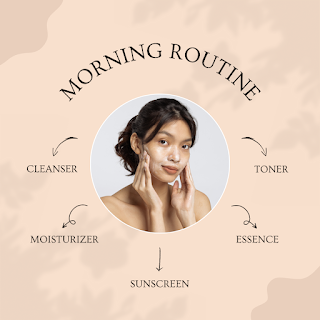Sunscreen is an essential tool in protecting your skin from the harmful effects of the sun. With its ability to block or absorb harmful ultraviolet (UV) radiation from the sun, sunscreen can help prevent sunburn, premature aging, and skin cancer. In this article, we will explore the different types of sunscreen, their advantages, and possible side effects.
Types of Sunscreen: There are two types of sunscreen: physical and chemical. Physical sunscreens, also known as mineral sunscreens, contain minerals such as titanium dioxide and zinc oxide that create a physical barrier between your skin and the sun. These minerals reflect and scatter UV rays away from your skin.Chemical sunscreens, on the other hand, work by absorbing UV radiation and converting it into heat. The active ingredients in chemical sunscreens include compounds like avobenzone, octanoate, and oxybenzone.
Advantages of Sunscreen
Sunscreen has several advantages, including protecting your skin from harmful UV radiation, preventing sunburn, and reducing the risk of developing skin cancer. Here are some of the main advantages of using sunscreen:
Protection from UV radiation
The primary advantage of sunscreen is its ability to protect your skin from harmful UV radiation. Exposure to UV radiation can cause a range of skin problems, including sunburn, premature aging, and skin cancer. By applying sunscreen regularly, you can significantly reduce your risk of developing these skin conditions.
Prevents sunburn
Sunburn occurs when your skin is exposed to too much UV radiation, causing it to become red, swollen, and painful. Sunscreen can help prevent sunburn by blocking or absorbing UV radiation, reducing the amount of damage your skin receives.
Reduces the risk of skin cancer
Exposure to UV radiation is the leading cause of skin cancer. By using sunscreen regularly, you can significantly reduce your risk of developing skin cancer, including melanoma, the most deadly form of skin cancer.
Helps prevent premature aging
Exposure to UV radiation can cause your skin to age prematurely, leading to wrinkles, fine lines, and age spots. Sunscreen can help prevent premature aging by protecting your skin from UV radiation.
Possible Side Effects of Sunscreen
Although sunscreen is generally safe to use, there are some potential side effects to be aware of. These can include:
Skin irritation
Some people may experience skin irritation after applying sunscreen. This can include redness, itching, and a rash. If you experience any of these symptoms, you should stop using the product and speak to your doctor.
Allergic reactions
In rare cases, people may experience an allergic reaction to sunscreen. Symptoms can include hives, swelling, and difficulty breathing. If you experience any of these symptoms, seek medical attention immediately.
Eye irritation
If sunscreen gets into your eyes, it can cause irritation and discomfort. To avoid this, be careful when applying sunscreen around your eyes, and consider using a sunscreen specifically designed for the face.
Hormonal disruptions
Some chemical sunscreens contain ingredients that can disrupt hormone function. These can include oxybenzone and octanoate. If you have concerns about hormonal disruptions, look for a sunscreen that uses physical blockers like titanium dioxide or zinc oxide instead.
How to Choose the Right Sunscreen
Choosing the right sunscreen can be overwhelming, with so many different products available. Here are some factors to consider when selecting a sunscreen.
1.SPF stands for sun protection factor, which measures the level of protection sunscreen offers against UVB radiation. It's recommended to use a sunscreen with an SPF of at least 30, which can block 97% of UVB rays.
Choose a broad-spectrum sunscreen: Look for a sunscreen that protects against both UVA and UVB rays. UVA rays can cause premature aging and skin damage, while UVB rays cause sunburns.
Consider your skin type: If you have oily or acne-prone skin, choose a sunscreen that is oil-free and non-comedogenic. If you have sensitive skin, look for a sunscreen that is fragrance-free and hypoallergenic.
Check the ingredients: Choose a sunscreen that contains ingredients such as zinc oxide or titanium dioxide, which provide physical protection from the sun. Avoid sunscreens with oxybenzone, which can cause skin irritation and may be harmful to the environment.
Apply enough sunscreen: Apply sunscreen generously to all exposed skin, including your face, neck, ears, and tops of your feet. Reapply every two hours or immediately after swimming or sweating.
Conclusion:
Sunscreen is an essential part of any skincare routine, especially during the summer months when the sun’s rays are stronger and more damaging to our skin. There are two main types of sunscreen – physical and chemical – each with its own advantages and disadvantages. While sunscreen is generally safe and effective, it can cause some side effects in certain individuals, and it is important to choose a sunscreen that is right for your skin type and to use it as directed. By using sunscreen regularly, you can help to protect your skin from the harmful effects of the sun’s UV rays and keep your skin looking healthy and radiant.
to buy copy the link below




No comments:
Post a Comment